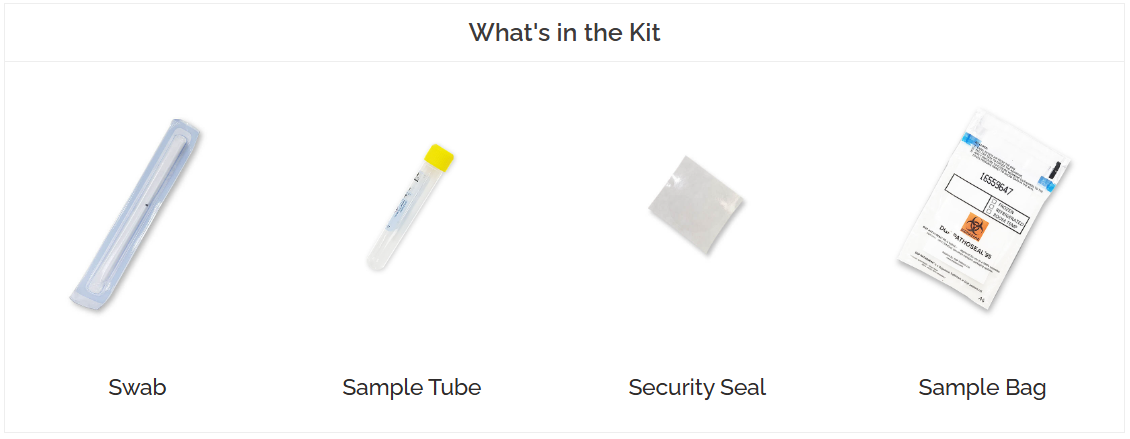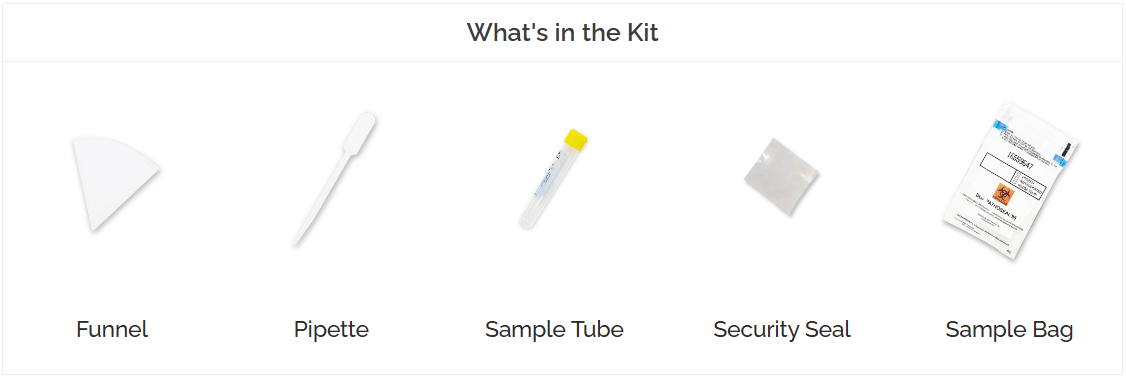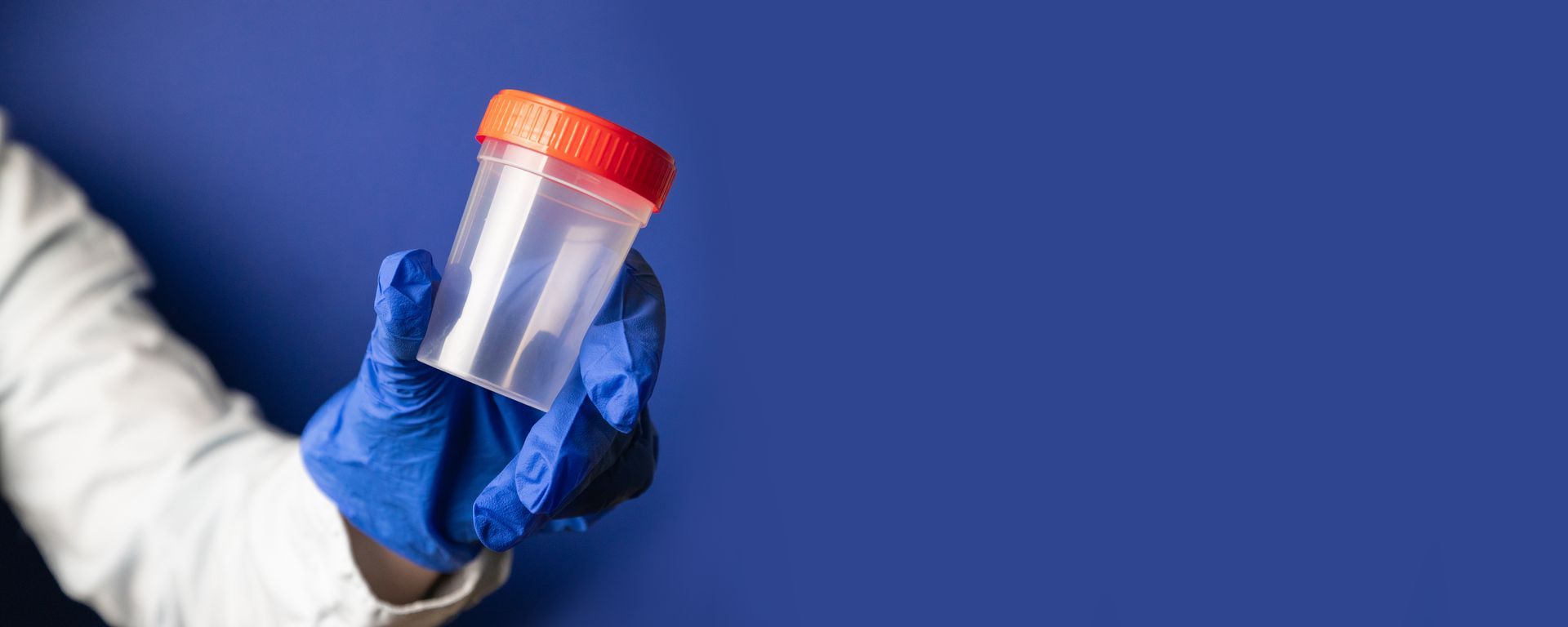Fast, affordable and discreet home STI testing
STIs can seriously damage your health. Home testing is simple and confidential. Treatment is usually very straightforward.

Slide title
Write your caption hereButton

DISCREET TESTING – FAST RESULTS
Taking charge of your sexual health has never been easier. Testing is essential for early detection and treatment of sexually transmitted infections, safeguarding your well-being and that of your partners. You can provide your sample in the privacy of your own home and get your result within a couple of days.
HOW DO I GET TREATED FOR AN STI?
Treatment for STIs is usually straightforward and varies depending on the type of infection.
If you receive a positive result, don’t worry - take it to your GP or a Sexual health clinic and they can use it to identify the infection and start treatment.
Do not delay your test - untreated STIs can cause long term health complications.
LONG TERM EFFECTS OF STIS
Untreated STIs can lead to serious health complications such as infertility, pelvic inflammatory disease, chronic pain, and an increased risk of certain cancers. Early detection and treatment are key to preventing these long-term effects and protecting your health.
Do not delay your test - untreated STIs can cause long term health complications.
How it Works
STEP 1 - ORDER YOUR TESTING KIT
Ordering your STI testing kit through Don’t Pass It On™ is quick, easy and discreet. If you order before 3pm your kit will be sent out the same day and delivered to your door in plain packaging.
STEP 2 - PROVIDE YOUR SAMPLE
Once you have received your testing kit, providing your sample is easy. Use the vaginal swabs or urine cup provided, then send your sample to us using the reply-paid packaging provided. Everything you need, including instructions is included in your kit.
STEP 3 - CONFIDENTIAL RESULTS
Your results will be ready the next working day after the lab receive your sample and will be sent to you via the email you registered with. For confidentiality, we never give results over the phone.
THE FASTEST SERVICE AT THE LOWEST PRICE
All our testing is done in-house at our UK-based, accredited laboratories. This means that unlike many online providers, we don’t have to pay a laboratory to process the results and then pass the cost onto you. It also means you get your result faster.
Do not delay your test - untreated STIs can cause long term health complications.
HOW WE PROVIDE GREAT SERVICE FOR SUCH A LOW PRICE
Unlike most online STI testing companies, all of our testing is done in-house in our UK-based, accredited laboratories. This means that we do not have to purchase our tests from another organisation, and then pass the cost onto you. You also have the peace of mind that your sample is tested to the highest standards.
Anyone who is sexually active can get an STI










Don't Pass It On Testing FAQs
Find the answers to some of our most frequently asked questions below:
-
How are STIs Passed On
They’re passed on through unprotected sex (sex without a condom) and are particularly common in sexually active teenagers and young adults.
If you are sexually active and under 25 in England, it’s recommended that you have a chlamydia & gonorrhoea test at least once a year, and when you have sex with new or casual partners.
-
Which age group is most at risk?
The age group most likely to be diagnosed with a sexually transmitted infection (STI) is people who are between the ages 15-24.
-
What do my results mean?
What do my results mean?
When you receive your results, you will be advised whether you have tested negative or positive for Chlamydia and Gonorrhoea.
What does a ‘negative’ result mean?
A negative result means that that we did not detect Chlamydia or Gonorrhoea in the sample that you provided. You may still have an STI if the sample was taken less than fourteen days after infection or if your sample was not taken correctly or if you you’ve been exposed since the sample was provided. In all these instances another test is always advised.
What does a ‘positive’ result mean?
A positive result means that you do have an STI. Try not to worry. Most STIs are easy to cure and all of them can be treated.
You’ll need treatment as soon as possible. It’s generally best and quickest to get this from a sexual health clinic, but your GP might be able to treat some STIs.
It is also important you tell any current or recent sexual partners (advice services may be able to offer this service anonymously if needed) so that they can be tested and treated if needed.
To avoid passing the STI on, don’t have sex (even with a condom) until you’ve completed your treatment. The sexual health clinic will be able to advise how long to wait.
Very occasionally, we may not be able to provide a definitive result for a test. This may be because you did not follow the instructions when providing the sample, we did not receive your sample within fourteen days or you may be using a product which interferes with the effectiveness of the test. For example certain hygiene or prescription products intended to prevent or treat bacterial and parasitic infections.
-
What should I do if I test positive for Chlamydia and Gonorrhoea?
The service we provide is a testing service and not a medical service. You will receive a test result for the presence or absence of Chlamydia and Gonorrhoea. If you have symptoms of a STI or if we detect the presence of Chlamydia or Gonorrhoea you should seek appropriate medical advice and treatment .
Do I need to contact my partners if I test positive for Chlamydia and Gonorrhoea?
Yes, you will need to contact your sexual partners if you test positive for Chlamydia or Gonorrhoea. This is because you may have caught the infection from a partner without them being aware that they have been infected, or you may have passed these infections on unknowingly. Letting your partners know makes sure that they can get tested and treated before the infection causes serious health issues, and also prevents them from spreading these infections to you or other partners the next time they have sex.
-
How quickly will I get my results?
If you order your test from us before 3pm we will send the STI Kit out the same day. If your order reaches us after 3pm it will be sent out the next working day. You can choose to have your test kit delivered by Royal Mail , which will usually be delivered between 1-3 working days, or with a next day courier delivery for an extra charge.
Results are usually available within two working days after our laboratory receives your sample. We will send you your results by email to the account you registered with. Your results are confidential - we will never give results over the phone.
It is important to note:
We send out our testing kits the same day if they are ordered before 3pm on a working day, and the following working day if they are ordered after 3pm.
If you select Royal Mail First Class delivery, we have no control over how quickly Royal Mail deliver. Their charter states they aim to deliver in 1 working day but their delivery performance can vary between 1 and 3. During times of industrial action it will take longer.
We cannot start the testing process until the sample is received.
Our working days are Monday - Friday excluding UK Bank holidays.
-
What is a Chlamydia and Gonorrhoea Test?
Our Chlamydia and Gonorrhoea test is a highly accurate process that checks for genital Chlamydia and Gonorrhoea. This test does not detect the presence of these infections in your throat or anus. The test involves taking a urine or a vaginal swab sample.
Why should I get tested for Chlamydia and Gonorrhoea?
Testing for Chlamydia and Gonorrhoea, as well as other sexually transmitted infections, is important to keep yourself and your partner/s healthy and safe. Regular testing makes sure that you can get treated as soon as possible if you do pick up an infection. Left untreated, these infections can cause serious health problems, like pelvic inflammatory disease and infertility.
Getting tested regularly also helps you reduce the spread of these infections. Chlamydia is the most common STI in the UK and making sure you get tested before having sex with a new partner helps to protect them from a potential infection. Some people choose to do a home Chlamydia and Gonorrhoea test when they meet a new partner.
You may also be worried that you have been exposed to these infections if you have recently had unprotected sex. In this case, you should wait at least 14 days after potential exposure to get tested because these infections may not show up on a test before then. If you have symptoms, then you should get tested straight away.
-
How does the test work?
Your Chlamydia and Gonorrhoea testing kit is easy to use. When you order the kit, it will be delivered to an address of your choice in discreet packaging. There will be no way to identify the contents of the packaging we send the test in without opening it.
What do we analyse?
We use a polymerase chain reaction (PCR) test to detect any DNA of Chlamydia and Gonorrhoea In the sample you provide.
PCR tests are the gold-standard method of diagnosing these infections.
How accurate is the Chlamydia and Gonorrhoea test?
The tests are very accurate, and if used correctly, at the right time, they can detect up to 100% of infections, according to laboratory data.
-
When should I get tested for Chlamydia and Gonorrhoea?
You should get tested if you think there is a chance you could have been exposed to a sexually transmitted infection.
For example, you should get tested if:
– you have had unprotected sex with a new partner
– you or your partner have had unprotected sex with other people
– you or your partner have symptoms of Chlamydia or Gonorrhoea
– a sexual partner present or previous tells you they have an STI
– you’re planning on getting pregnant or are already pregnant, as it is important to protect yourself and your baby from infections
How soon after unprotected sex can I test for Chlamydia and Gonorrhoea?
You should test for Chlamydia and Gonorrhoea 14 days after you have had unprotected sex unless you already have symptoms.
This is because Chlamydia and Gonorrhoea have an incubation period, meaning they may not show up on a test if you take it too early. To get the most accurate results you need to wait for 2 weeks after exposure to get tested.
There is a small chance that the infection may not show up on a test and give you a negative result. Therefore, if you receive a negative test, you should repeat the test 6 weeks later to confirm your results.
How long after exposure should I get tested for Chlamydia and Gonorrhoea?
You should carry out an at home test 14 days after you think you may have been exposed to Chlamydia or Gonorrhoea or had unprotected sex. If you have symptoms, talk to your doctor about when you should take the test.
-
How do you take a vaginal swab?
 Button
ButtonWash your hands and unpack the kit on a clean surface,
Unpack the Vaginal swab - do not touch the cotton tip. Holding the swab at the opposite end, carefully insert the cotton tip end of the swab about 2 inches (5cm) into your vagina. Gently rotate the swab for about 20 seconds, making sure it touches the walls of the vagina so that the moisture is absorbed by the swab.
Remove the swab and insert the soft end of it into the Sample collection tube, snapping the swab handle where it is marked. Discard the swab handle.
Tightly close the Sample tube and write your name and date of birth on the label.
Place the Sample tube in the Bag. Seal the Bag by pulling the white backing away from the top and folding the adhesive strip downwards.
Place the Bag, together with the completed form overleaf, into the Postage paid returns box and seal where indicated with the Security seal
-
How do you take a urine test
 Button
ButtonWash your hands and unpack the kit on a clean surface
Open the Urine collection cup and pass a small amount of urine into it
Using the pipettor provided, extract some urine and fill the Sample collection tube to the lines on the side
Tightly close the Sample collection tube and write your name and date of birth on the side
Place it in the Bag with absorbent pad and seal it by pulling the foil away from the top of the bag
Place the sealed bag into the Postage paid returns box and seal where indicated with the Security seal
-
What is Chlamydia?
Chlamydia is the most common bacterial STI in the UK. It is passed on by having unprotected sex (sex without a condom).
It is especially common in young people, with around 60% of reported cases found in those under 25. That’s why the NHS recommend you get tested for STIs every time you change partners and at least once a year.
If Chlamydia is left untreated, it can lead to infertility in both genders, and pelvic inflammatory disease in women.
What are the symptoms of Chlamydia?
Most people who get Chlamydia do not know they have it because it often presents without any symptoms.
However, some symptoms you may have include:
– pain when you pee
– unusual discharge from the vagina, penis or anus
– painful and swollen testicles
Women may also have:
– tummy pain
– bleeding after sex
– bleeding between periods.
-
What is Gonorrhoea?
Gonorrhoea is also a sexually transmitted infection that is caused by the bacteria ‘neisseria gonorrhoeae’ or gonococcus.
How is Gonorrhoea spread?
The bacteria responsible for the infection are present in discharge from the penis and vagina. It is easily spread through unprotected sex or by sharing unwashed or unprotected sex toys.
You cannot catch gonorrhoea through kissing, hugging, sharing towels, cutlery, cups, toilet seats or swimming pools.
If left untreated, gonorrhoea can cause long term health complications, and it can spread to other parts of the body.
What are the symptoms of Gonorrhoea?
Many people do not have symptoms if they have gonorrhoea. It takes around two weeks for the infection to develop, so you may notice symptoms around this time.
Gonorrhoea symptoms in men include:
– unusual white, yellow, or green discharge from penis tip
– inflamed or swollen foreskin
– pain when peeing
– painful, tender testicles
Gonorrhoea symptoms in women include:
– thin, watery, green, or yellow vaginal discharge
– pain or burning feeling when peeing
– pain in lower tummy
– bleeding between periods
– heavier periods
– bleeding after sex
-
How do I tell my sexual partner(s) about my STI?
Open and honest communication is crucial when disclosing your STI status to sexual partners. Choose a private and calm setting to have the conversation, provide accurate information about the STI, and discuss steps to protect their health. Remember, your partner(s) have the right to make informed decisions about their sexual health.
-
I feel embarrassed about my STI – what should I do?
It's normal to experience a range of emotions, including embarrassment, upon receiving an STI diagnosis. However, it's important to remember that STIs are common and do not define your worth or character. Seeking medical care and support from trusted healthcare professionals, friends, or support groups can help alleviate feelings of embarrassment and empower you to take control of your sexual health.
-
How can I prevent against STIs?
Practicing safe sex is the most effective way to prevent STIs. This includes consistent and correct use of condoms during vaginal, anal, and oral sex, limiting the number of sexual partners, and communicating openly with partners about STI status and testing history. Additionally, getting vaccinated against STIs such as HPV and hepatitis B can provide additional protection. Regular STI testing, especially after unprotected sex or a change in partners, is also crucial for early detection and treatment.
-
Do I have to go to my family GP if I test positive?
No. It is completely up to you where you go for treatment. There are specialist sexual health clinics all over the UK. We supply a list with your result email if your test is positive.

Don't Pass It On™ and NorthGene™ are trading names of Biofortuna Limited

Registered in England and Wales 0651439
Tel: 0151 294 5699
Calls may be recorded for monitoring and training purposes.
© Copyright 2024 Biofortuna Limited All Rights Reserved.






